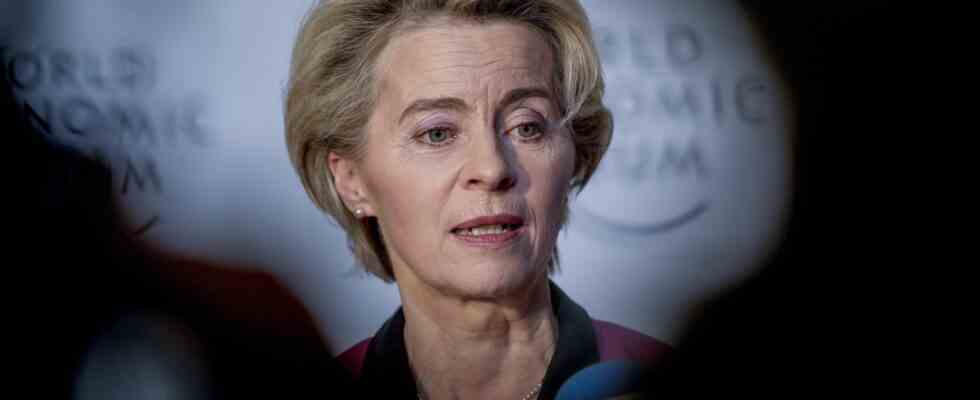Status: 02/02/2023 04:22
Before the meeting between the EU Commission and the Ukrainian government, one word in particular is making the rounds in Brussels about Kiev’s accession efforts: expectation management.
Warnings are already coming to Brussels from a number of EU capitals that the Commission’s visit to Kyiv should not raise too high expectations that will then have to be disappointed later.
There is a reason for the warnings: leaders in Brussels have recently engaged in a veritable bidding war with promises of a – more or less imminent – European future for Ukraine. Most recently, it was Council President Charles Michel when he traveled to Kyiv two weeks ago and spoke more concretely about EU accession to the Ukrainian parliament than almost anyone before:
We have already given Ukraine candidate status. That means: the question of membership has been answered. Ukraine is the EU and the EU is Ukraine. And we must do everything we can to ensure that this promise is kept.
Brussels “Expectation Management”
The EU Council President did not promise the enthusiastic Ukrainian MPs a specific date. But the head of government in Kyiv, Prime Minister Denis Schmyhl, said afterwards that his country, Ukraine, wanted to join within the next two years. Two years until Ukraine’s EU membership – that’s considered completely unrealistic in Brussels. Which is why the word about expectation management is now doing the rounds.
According to the commission, the trip to Kiev by the commissioners and boss Ursula von der Leyen is actually more about getting to know each other. Much like in a joint cabinet meeting, the commissioners and their counterparts, the Ukrainian ministers, are supposed to bend over the common issues. One issue is financial aid in the billions.
Von der Leyen: “Our support is unwavering”
“The Commission is releasing three billion euros,” announced the head of the Commission at the economic forum in Davos, and promised that this was only the first tranche of a total of 18 billion that are to flow from the EU coffers to Ukraine this year. “The largest financial aid that the EU has ever given to a third country.”
The Ukrainian government can use the money to cover the running costs. Salaries pay for teachers, police officers and security forces. “We will not let up, our support is unshakable,” said Ursula von der Leyen in Davos, “for restoring the power supply, heating, water and preparing for reconstruction.”
Corruption scandal reveals concerns
The more billions are pledged and flow towards Ukraine, the more questions are asked in Brussels as to whether the money is going where it is supposed to go. The latest corruption scandal has fueled new doubts – and confirmed old doubts. Especially in Paris. French President Macron said months ago that Ukraine’s accession process would not take years, but decades.
Ursula von der Leyen, on the other hand, never tires of emphasizing the path the country has already traveled towards membership in a short time. She does not name a specific year. It all depends on when the country has met the accession criteria. The whole process is conditional. If these are not met, no previously defined year numbers will help.
The visit from Brussels will probably exchange a few open words with the representatives of the Ukrainian government about how far Ukraine has come in the meantime.
Difficult journey to Kyiv – can the EU live up to the high expectations?
Helga Schmidt, WDR Brussels, 02/02/2023 04:22 a.m

